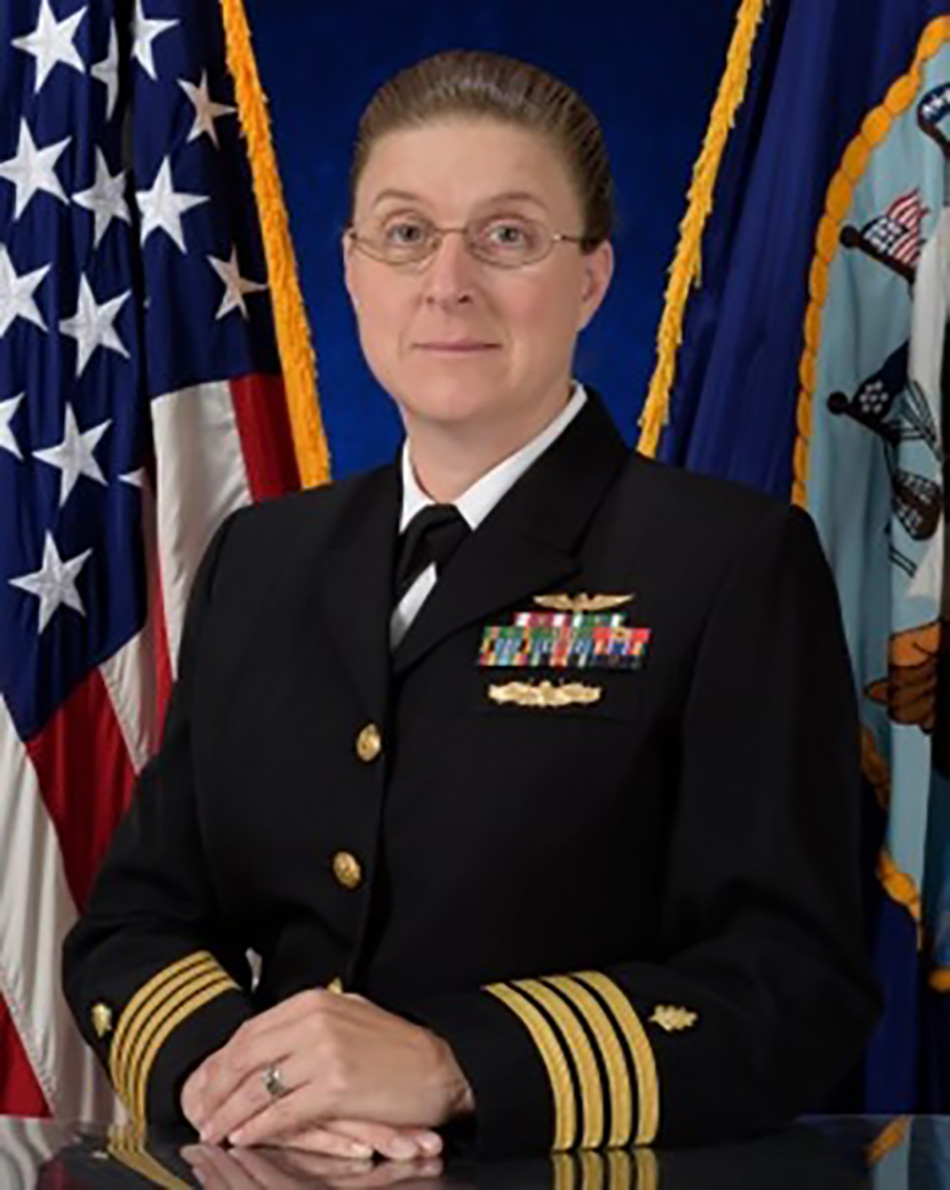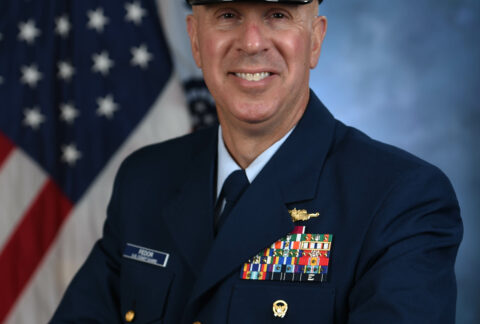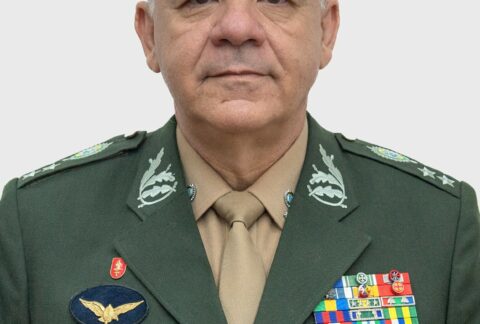U.S. Navy Captain Kathryn Elliott is the commanding officer of hospital ship USNS Comfort (T-AH 20) Medical Treatment Facility (MTF) since May 2021.
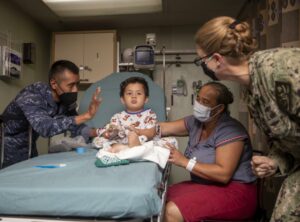
The USNS Comfort is currently deployed to Latin America and the Caribbean as part of mission Continuing Promise 2022. The mission, which already stopped in Guatemala and Honduras before continuingon to Colombia, Dominican Republic, and Haiti, has a crew of about 1,000 military and civilian personnel, who work alongside with a variety of governmental agencies to provide medical assistance to local communities based on the needs identified by host-nation health ministries.
Capt. Elliott, originally from San Diego, California, board certified in internal medicine and a fellow of the American College of Physicians, spoke with Diálogo about the importance of her mission aboard the USNS Comfort.
Diálogo: What is your focus as commanding officer of hospital ship USNS Comfort (T-AH 20)?
U.S. Navy Captain Kathryn Elliott, commanding officer of hospital ship USNS Comfort: As commanding officer of USNS Comfort, my role is really twofold: I am responsible for ensuring the efficient and effective running of Comfort as an MTF and all the services it provides, and, in coordination with the Military Sealift Command civilian mariners, for many of the everyday functions of a USNS ship. It is a demanding and rewarding job not many MTF commanders get the opportunity to experience.
Diálogo: The USNS Comfort is deploying for two months in support of Continuing Promise 2022. How do you achieve mission success?
Capt. Elliott: Mission success is providing high quality care and treatment to as many patients as possible in our host nations and ensuring those countries and their citizens see that the United States is committed as a partner to their country and the region.
Diálogo: What military personnel make up the crew on board and what kind of capabilities do they have?
Capt. Elliott: Navy medical personnel, primarily from Naval Medical Center Portsmouth, Virginia, staff the MTF. Medical specialists from the Army, Air Force, partner nations, and non-federal entities augment the MTF staff, and play a critical role in strengthening maritime partnerships, improving interoperability, and increasing readiness. We also have a platoon of U.S. Marines who are responsible for the security of the ship.
Diálogo: What do you view as the biggest challenge for this deployment?
Capt. Elliott: The biggest challenge is ensuring our efforts have a long-lasting impact after the Comfort departs. The mission is about touching lives and building relationships that continue long after we are gone.
Diálogo: What is the most important aspect for crew members when treating partner nations’ patients?
Capt. Elliott: Our crew are humble professionals. They understand that the most important aspects of their interaction with partner nation counterparts, patients, and more is providing care and showing respect. As representatives of the United States, the Comfort’s crew foster goodwill and strengthen the U.S. relationship with these countries.
Diálogo: What is new with this seventh deployment of the USNS Comfort in support of Continuing Promise?
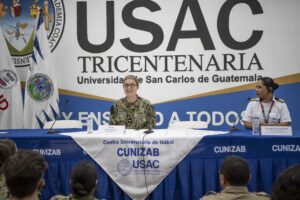
Capt. Elliott: Continuing Promise continues to expand and include more initiatives as we strengthen our partnerships.The region is prone to natural disasters, as evidenced by the earthquake that struck the Les Cayes region of Haiti in August 2021, followed by the passing of Tropical Storm Grace over the same region two days later. Continuing Promise enables training and information exchanges on a variety of humanitarian and disaster relief topics so that when called on, personnel can rapidly respond to such disasters.
Continuing Promise 2022 also features seminars on the Women, Peace, and Security Initiative during each mission stop in support of United Nations Resolution 1345. Women are more adversely impacted by conflict and crisis, and research demonstrates that including women in security planning leads to a more peaceful world.
Diálogo: How do U.S. military personnel work alongside civilians, federal agencies, and partner nations to provide medical assistance to communities in need?
Capt. Elliott: The U.S. military worked side-by-side with civilians and federal agencies throughout the planning process to make this iteration of Continuing Promise as successful as possible. Medical assistance is coordinated with ministries of Health and the U.S. agencies in country working health issues such as U.S. Department of Health and Human Services, U.S. Agency for International Development, Animal and Plant Health Inspection Service, and the Centers for Disease Control and Prevention. It’s important that we continue to work with these agencies because they are the continuity for care where we go.

